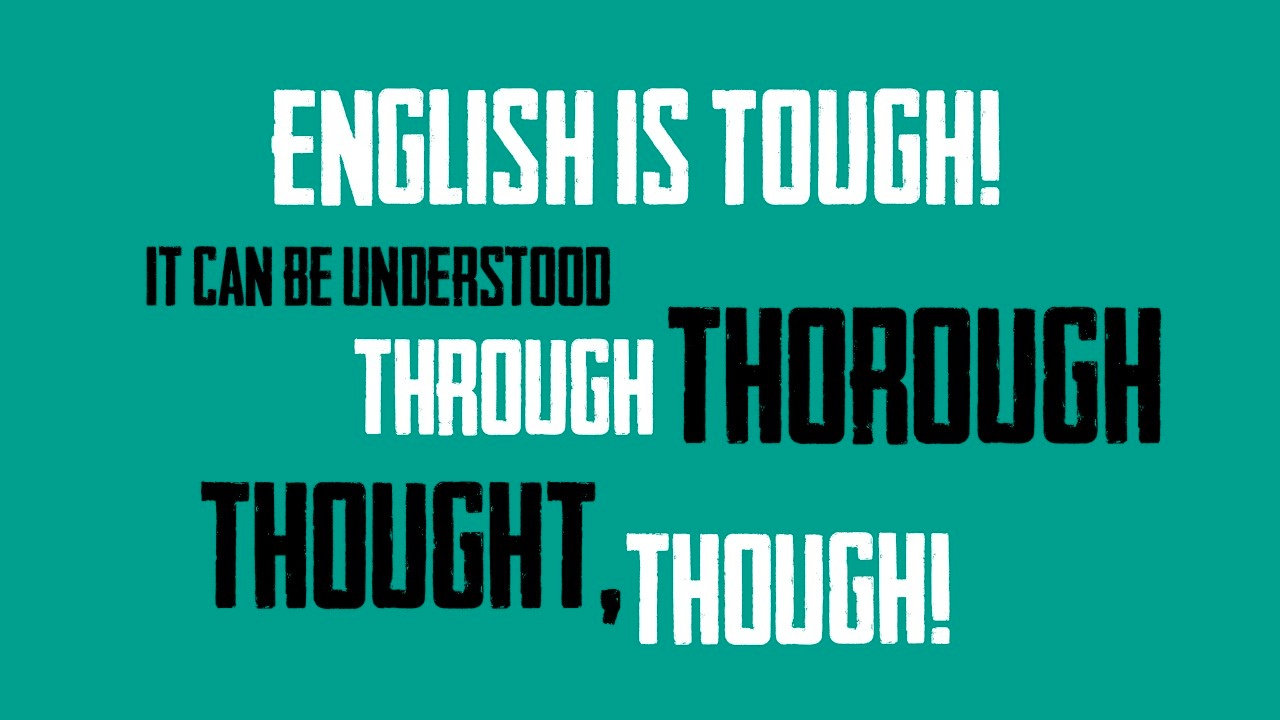Why is English so hard to learn?
Mar 22, 2022
English is tough! It can be understood through thorough thought, though.
Did you know the Modern English language we speak today is inherently multilingual, with roots in many different languages? It's got some Latin, Greek, Hebrew, Old German, Persian, Old English, Middle English, Old Norse, French and Early Modern English to name but a few!
It has three major evolutionary periods: Old English (c.450 to 1100), Middle English (c.1100 to 1500), and Modern English (c.1500 to present day) with the ‘Great Vowel Shift’ being a major player in the transition from Middle to Modern English.
The Great Vowel Shift marked a big change in the way long vowels were pronounced – e.g. the long i in Middle English bite sounded like Modern English beet.
But why did this happen? No one knows for sure, but it could have been due to the increase in French ‘loanwords’ causing the shift, or the fact that as the English aristocracy were predominately French at this time, and so their English had French pronunciation, it was an unintentional trend that stuck – although there is also an argument to say the GVS occurred to make English sound less French 😅! Another theory is that Londoners wanted to sound different to the influx of Midlanders following migration after the Black-Death.
Our point is that English is very much a multilingual language and the words we speak in general conversation today can have pretty diverse origins. And it's also why English can be so hard for non-native speakers to learn! Here are five ancient words we still use today in Modern English:
Fro
Do you sometimes feel like you are constantly going to-and-fro the snack cupboard? And it’s even worse when the kids are home?! Well the word “fro” was the Scottish way of pronouncing ‘from’ and prior to this had origins in Old Norse “frá”.
Hue
Just like languages, we love using different hues together – take a look at our colourful Babel Babies logo! “Hue” originates from the word “híew” which is an Old English word for appearance.
Eke
Do your little ones like to eke out bedtime like ours do?! “Eke” is another word that has it’s origins in Germanic Old English “ēacian/ ēcan”, meaning to ‘increase’ as well as “auka” in Old Norse.
Wend
Do you wend your way casually to school & nursery (we wish!) in the morning or is it a frantic dash to get out the door? And have you noticed how you don’t just “wend to school” but always “wend your way” whether it’s a relaxing journey or not?!
At one point English speakers did use “wend” without “way” as it was just another word for “go” in Old English. Fascinatingly, “went” was the past tense of “wend” and “gaed” was the past tense of “go”, yet people started to use “go” as the preferred verb instead of “wend” but still use “went” as the past tense – leaving us using a very irregular verb today!
Lurch
As in “left in the lurch” (perhaps by the babysitter cancelling last minute before your very long-awaited & overdue evening out 😫). Rather than lurching from one thing to another, this type of “lurch” has its origins in an old French game called “Lourche” (similar to backgammon) and became the word to use for any scenario where you beat your opponent by a huge score.
Cool, hey? We love learning about the origins of words and how they bridge multiple languages. We touch on these connections in our Children's Languages Adventure, so if the etymology fascinates you too we're sure you'd love to join us for the multilingual ride!
Ready to start exploring languages with your little ones?
Join our Children's Languages Adventure! For a single PayWhatYouCan (£5+) payment, you'll receive lifetime access to 32 multilingual singalong videos & 100+ downloads, plus access to the BB online community.
Designed for 0-7s and their grown ups!
FASCINATED BY LANGUAGES?
SIGN UP TO OUR 'TALKING ABOUT TALKING' NEWSLETTER
We explore the real science behind how young children learn to speak, along with tips for learning languages with your little people and some awesome FREE languages treats!
We hate SPAM. We will never sell your information, for any reason.

